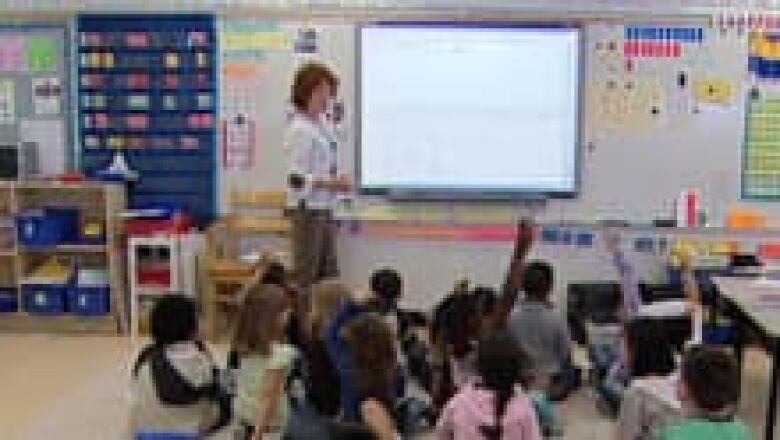Early French immersion entry point controversy continues
Some anglophone parents are choosing francophone system

Some anglophone parents are still unhappy with the options for learning French as a second language in New Brunswick and are opting for the francophone system instead.
Four years ago, the former Liberal government moved the entry point for early French immersion to Grade 3 instead of Grade 1.
A task force recently recommended moving the entry point back to Grade 1, but to keep it at Grade 3 for the 2012-13 school year.
Tracy Lipton McClusky, a graduate of early French immersion, who married a francophone, wanted early immersion for her twin boys who started kindergarten this week.
But she ended up choosing the francophone system because she doesn't like the later entry point for immersion.
'We kind of felt strongly that we wanted to start as early as possible so at that point the decision had already been made.' —Tracy Lipton McClusky, parent
"We kind of felt strongly that we wanted to start as early as possible so at that point the decision had already been made," said Lipton McClusky, who uses French every day at work, but speaks mostly English at home.
"There's many, many people in our position who are going this route and primarily because they want them to start early and they have one French-speaking parent and one English — and you're seeing those struggles of, I would think, the English parent trying to keep up and to adapt.
"But I think at the end of the day the value of what they're getting is what we need to focus on."
Still, Lipton McClusky said she understands many francophone parents are concerned that anglophone students are holding back learning in the francophone school district.
She said the best solution would be going back to immersion that starts in Grade 1.
Monique Chamberlain, another graduate of early French immersion, said she agrees.
Chamberlain, who speaks French at work, but mostly English at home, doesn't agree with the current early immersion entry point being in Grade 3.
But she still chose early immersion for her five-year-old son since he only understands a few words of French.
"So all the more reason for our choice with the French immersion program," she said.
"Whatever is going to happen when he's starting this, he'll be in the same boat with all of the group in the class."
The Department of Education has a policy that outlines the schools where children can enrol. The policy states that children can attend a school if they speak the language of that institution, both official languages or neither official language.
The only time a student can enrol in a school without meeting those guidelines is if they are an ayant droit.
Ayant droit refers to children who have one parent who was schooled in French and enjoys protection under the constitution's minority language education clause and another parent who does not speak French.
The constitution grants those children the right to attend a French school even if they are not fluent.
Return to Grade 1 entry unclear

Education Minister Jody Carr has refused to speculate what will happen with the entry point beyond next year.
The provincial government won't rush to make a decision, he has said, suggesting more research is required to determine what impact such a change would have on students and the education system.
It's not enough to undo the previous government's controversial decision to change the entry level, Carr has said.
The education department needs to find better ways to deliver French immersion to students in Grade 1 and Grade 2 before any changes can occur.
The early French immersion task force was launched last fall under the leadership of former education ministers Elvy Robichaud and James Lockyer.
The issue of early French immersion has been a hot political issue for several years.